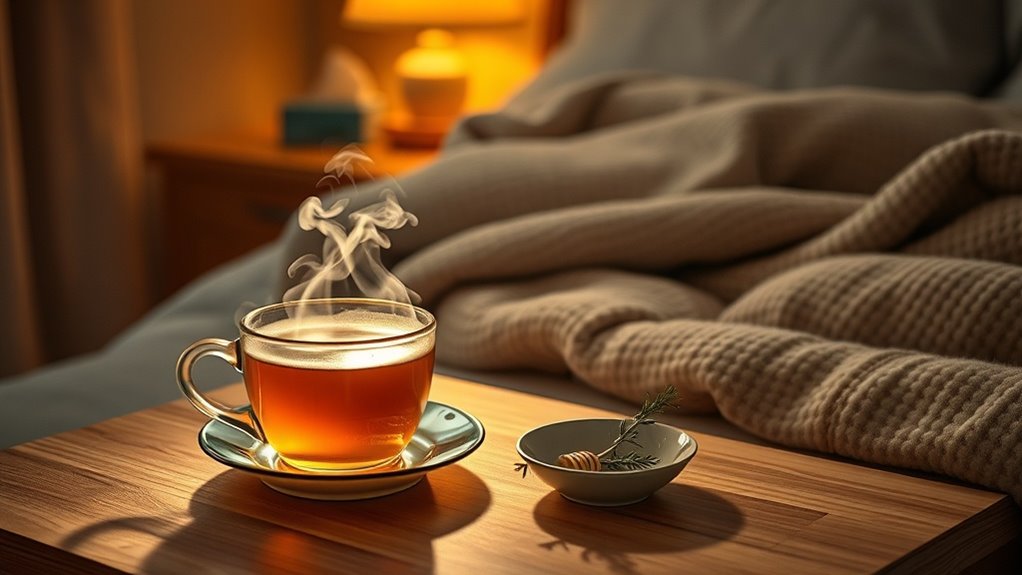Cold and Cough Remedies to Help You Sleep Better
When you’re battling a cold or cough, certain remedies can help you get better sleep. Try natural herbs like thyme, honey, and ginger for relief. Using a humidifier adds moisture to the air, soothing your throat and nasal passages. Over-the-counter medications like antihistamines and decongestants can also ease symptoms. Adjusting your sleep position and maintaining a regular sleep schedule enhances comfort and rest. Discover more options for restful nights and effective relief.
Natural Herbal Remedies
When you’re battling a cold or cough, exploring natural herbal remedies can offer relief without the side effects often associated with over-the-counter medications.
Ingredients like thyme, honey, and ginger can act as effective cold cough night cures. Thyme contains antiseptic properties; honey soothes irritation, while ginger boosts your immune system. Incorporating ginger tea into your routine may also enhance your body’s defenses against colds and flu.
These remedies may help you sleep better while your body heals.
Humidifiers and Steam Inhalation
Using a humidifier or engaging in steam inhalation can considerably alleviate the discomfort of a cold or cough.
Adding moisture to the air helps soothe irritated nasal passages and throat, making it easier for you to breathe.
You can also try inhaling steam from a bowl of hot water, which can loosen mucus and promote better sleep by calming your symptoms.
Over-the-Counter Medications
Over-the-counter (OTC) medications can markedly ease the symptoms of colds and coughs, providing quick relief so you can go about your day.
Here are a few options to evaluate:
-
Antihistamines: Help reduce runny nose and sneezing.
-
Cough Suppressants: Diminish the urge to cough, allowing better sleep.
-
Decongestants: Relieve nasal congestion for easier breathing.
Always follow dosage instructions for safety.
Sleep Positions and Comfort Tips
Feeling under the weather can make it tough to get a good night’s sleep.
Try sleeping on your back with an extra pillow to elevate your head; this can ease congestion.
Alternatively, side sleeping may help reduce postnasal drip.
Keep your bedroom cool and dark, and use soft fabrics to enhance comfort.
These small adjustments can markedly improve your rest while you recover. Incorporating plenty of fluids can also help flush toxins and support your immune function during the healing process.
Lifestyle Changes for Better Sleep
While it’s easy to overlook lifestyle choices when attempting for better sleep, making intentional adjustments can greatly impact your rest.
Consider these changes:
- Stick to a consistent sleep schedule, even on weekends.
- Limit screen time before bed to reduce blue light exposure.
- Create a relaxing bedtime routine to signal your body it’s time to wind down.
These simple steps can enhance your overall sleep quality.
